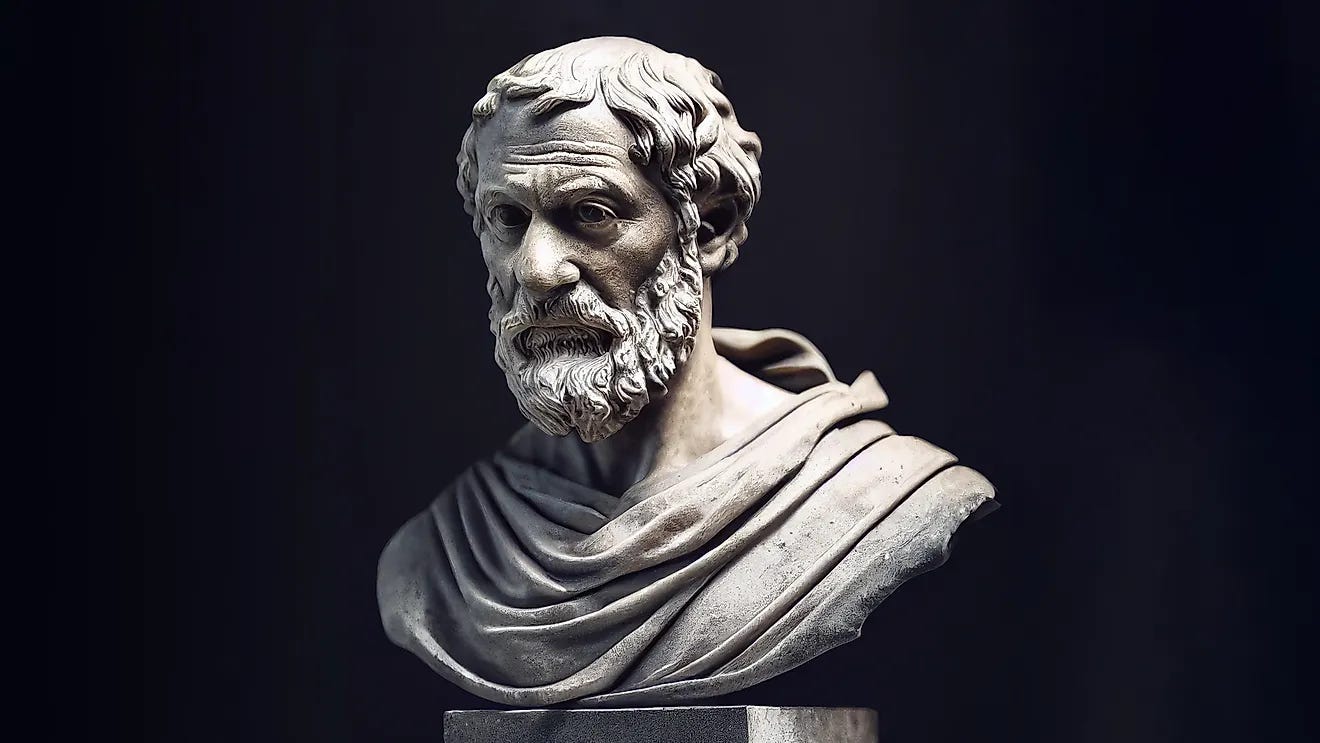Library #34: Metaphysics
The May-June 2025 Library subscription book will be METAPHYSICS by Aristotle
Metaphysics is one of the principal works of Aristotle, in which he develops the doctrine that he calls First Philosophy. The work is a compilation of various texts treating abstract subjects, notably substance theory, different kinds of causation, form and matter, the existence of mathematical objects and the cosmos, which together constitute much of the branch of philosophy later known as metaphysics.
His work remains astonishingly relevant despite the 23 centuries that separate his time from our own, and the clarity of his logical reasoning remains an object lesson in how to utilize the human intellect to better observe and understand the world. Consider, for example, the way in which the philosopher distinguishes between experience, science, and art, and the nature of their interactions.
Experience seems very similar to science and art, but actually it is through experience that men acquire science and art; for as Polus rightly says, "experience produces art, but inexperience chance." Art is produced when from many notions of experience a single universal judgement is formed with regard to like objects. To have a judgement that when Callias was suffering from this or that disease this or that benefited him, and similarly with Socrates and various other individuals, is a matter of experience; but to judge that it benefits all persons of a certain type, considered as a class, who suffer from this or that disease is a matter of art.
It would seem that for practical purposes experience is in no way inferior to art; indeed we see men of experience succeeding more than those who have theory without experience. The reason of this is that experience is knowledge of particulars, but art of universals; and actions and the effects produced are all concerned with the particular. For it is not man that the physician cures, except incidentally, but Callias or Socrates or some other person similarly named, who is incidentally a man as well. So if a man has theory without experience, and knows the universal, but does not know the particular contained in it, he will often fail in his treatment; for it is the particular that must be treated.
Nevertheless we consider that knowledge and proficiency belong to art rather than to experience, and we assume that artists are wiser than men of mere experience; and this is because the former know the cause, whereas the latter do not. For the experienced know the fact, but not the wherefore; but the artists know the wherefore and the cause. For the same reason we consider that the master craftsmen in every profession are more estimable and know more and are wiser than the artisans.
METAPHYSICS will be the fourth work of Aristotle published by Castalia Library, and it will be designed in a manner to make it complement the previous three, two of which are now sold out, on the bookshelf. We anticipate doing second editions of the previous three works in one production run next year.
In other Library news, the Spring Sale is continuing, with three books now sold out and 10 more still on sale at a 47 percent discount off retail price until Sunday night. We also expect to have some very exciting news to announce on the production front within the next two weeks.
CASTALIA HISTORY: the APR-JUN Castalia History book is The History of Florence by native Florentine Niccolo Machiavelli.
CASTALIA CATHEDRA: The JAN-JUN Castalia Cathedra book is The Everlasting Man by G.K. Chesterton.
For questions about subscription status and billings: subs@castalialibrary.com
For questions about shipping and missing books: shipping@castaliahouse.com







ffs. here's most of the answers: https://kaiserbasileus.substack.com/p/metaphysics-in-a-nutshell
METAPHYSICS: Good choice!